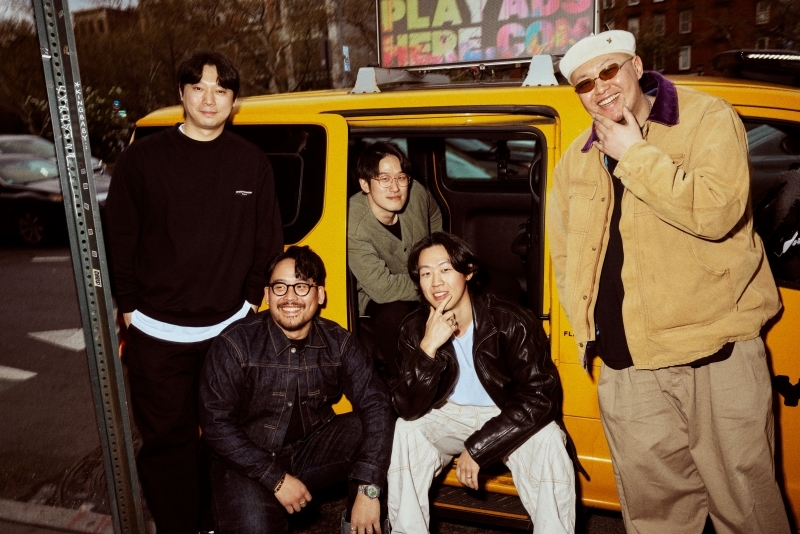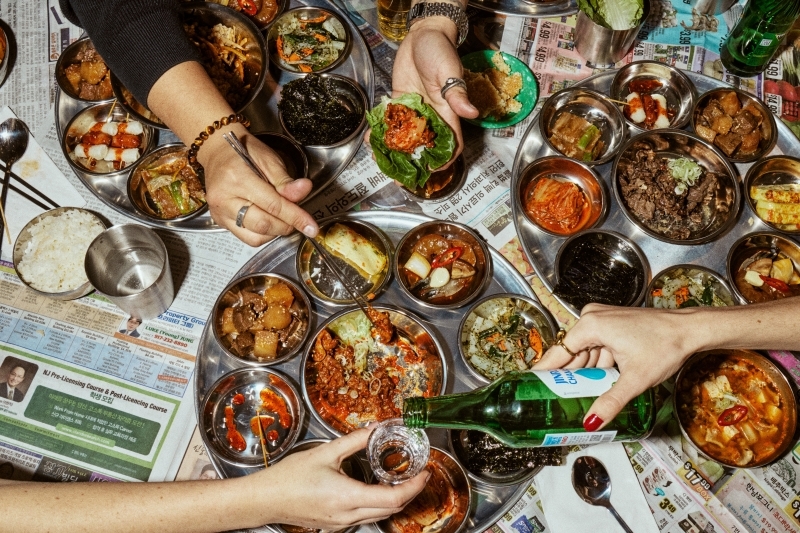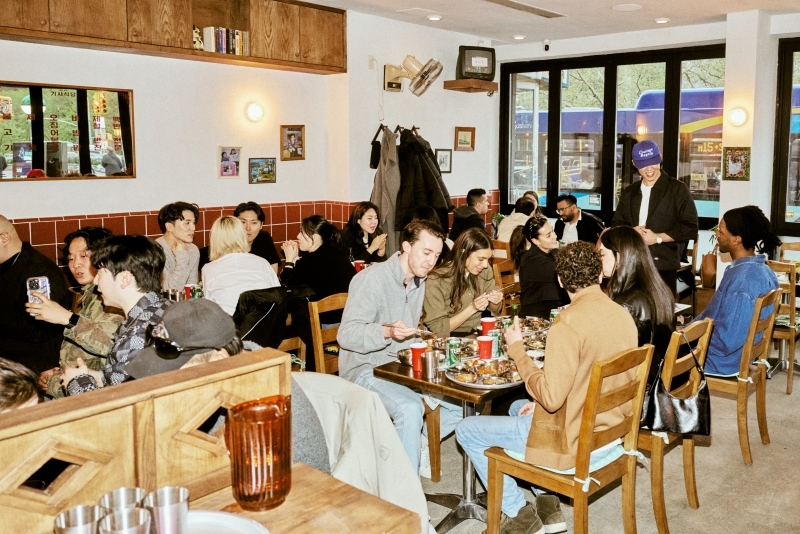- 한국어
- English
- 日本語
- 中文
- العربية
- Español
- Français
- Deutsch
- Pусский
- Tiếng Việt
- Indonesian
By Honorary Reporter Foteini Chatzoudi from Greece
Photos = Alex Lau
A Korean-style diner catering to taxi drivers, known as a gisa (a.k.a. kisa) sikdang, has opened in New York.
During the 1980s, famous restaurants in Korea earned their reputations primarily through word of mouth from cabbies, who possessed keen knowledge of affordable eateries with simple menus and quick service that catered to the hectic schedules of such workers.
Kisa Sikdang, which was opened on April 20 in the Lower East Side of Manhattan, seeks to preserve this legacy handed down by Korean taxi diners from decades ago.
The following are excerpts from an interview conducted from April 22-26 with Kisa Sikdang President David Joonwoo Yun; vice presidents Steve Jaewoo Choi and Yongmin Kim; Branding Director Kove Lee; and Executive Chef Simon Youngju Lee.

Kisa Sikdang Branding Director Kove Lee is on the far right, President Steve Jaewoo Choi middle right, Vice President Yongmin Kim far left, Vice President David Joonwoo Yun middle left and Executive Chef Simon Youngju Lee top middle.
What motivated you to bring the concept of a gisa sikdang to the Big Apple?
Choi: The motivation behind bringing the concept of a gisa sikdang-style diner to NY stemmed from a combination of factors close to our hearts.In Korea, such a restaurant is known for delicious yet affordable meals and a cozy atmosphere. There's a saying in Korea that if you're in a new city and want to try the best food there, ask taxi drivers; they know all the finest spots. Those that have stood the test of time in surviving for 10-30 years are particularly trusted because they've won over the discerning taste of these drivers. So we wanted to be the first to introduce this unique culture of Korea to New York.
Also, we observed a similar trend back in Korea, where many long-standing casual restaurants were disappearing as owners retired. The newer establishments either offered non-Korean cuisines or focused on fine dining. This shift in preference among younger restaurateurs toward non-Korean or upscale dining made us want to prove that the essence of Korean cuisine could thrive in both New York and Korea, thus sustaining the culture and tradition we hold dear.
Q. What dishes are served at Kisa Sikdang?
Lee: We offer a relaxed and homey approach to Korean cuisine reminiscent of dishes our parents would prepare at home. Our menu features staples like rice and soup paired with seasonal banchan (side dishes), evoking nostalgic memories of childhood. Among our offerings are gyeran mari (egg omelet), saewoo jang (soy-cured shrimp), homemade kimchi and chungpomuk muchin (mung bean jelly salad).
Patrons can select from four main entrees: bulgogi (marinated grilled beef), spicy pork, spicy squid and bibimbap, or rice mixed with meat, vegetables and spicy pepper paste. We embrace the homestyle cooking concept prevalent in Korean households. Many of our banchan recipes are inspired by my mother's cooking, with our chungpomuk recipe being a cherished family secret passed down through generations.

The term baekban refers to a set menu style at restaurants featuring steamed rice, soup and side dishes.
What goes into the design and atmosphere of your restaurant?
Yun: Our goal is to cultivate an atmosphere that transports customers to Korea while they dine at our restaurant. To achieve this, we've imported numerous props from Korea like coffee and drink dispensers commonly found at Korean establishments.We've also adorned our walls with a calendar provided by a Korean bank, inspired by the old belief that such a calendar attracts prosperity to homes and restaurants. We've installed old TVs on the ceiling showing vintage Korean news and TV programs and wall fans throughout the restaurant, capturing the authentic vibe of a traditional gisa sikdang.
How have your customers responded to your restaurant?
Choi: The response to our restaurant has been overwhelmingly positive. We've received numerous expressions of welcome and excitement about having a traditional Korean restaurant in the neighborhood. Many notice the striking similarity between our establishment and the beloved gisa sikdang in Korea.
One response that strongly resonated with us was when people shared how dining evokes fond memories of Korea for them. They said they felt transported back to Korea due to the authentic atmosphere we've strived to create, which aligns perfectly with our original intent.

Customers eat at Kisa Sikdang in the Lower East Side of New York's Manhattan area.
How does Kisa Sikdang reflect Korean culture and culinary traditions?
Kim: Unlike other cuisines that follow the concept of courses like appetizers, mains and desserts, Korean food culture revolves around the concept of baekban, where rice, soup, side dishes and the main dish are served together on one table, offering abundance and diversity. Moreover, we emphasize the use of seasonal ingredients, a core aspect of Korean culinary tradition.Korea has long had a culture of sharing food with neighbors and eating together. By connecting these cultural aspects with hospitality, I wanted to promote this culture through Kisa Sikdang.
What does the future hold for your restaurant?
Yun: Our focus is to present a fresh perspective on Korean cuisine, emphasizing authenticity over reinterpretation. Looking ahead, our vision extends to expanding our operations to include lunch and potentially late-night service.
Our overarching mission remains rooted in the belief that by launching in New York and garnering global appreciation for this casual yet flavorful aspect of Korean cuisine, we can catalyze a positive movement that sustains the presence of casual Korean diners, even back in the motherland.
msjeon22@korea.kr
*This article is written by a Korea.net Honorary Reporter. Our group of Honorary Reporters are from all around the world, and they share with Korea.net their love and passion for all things Korean.